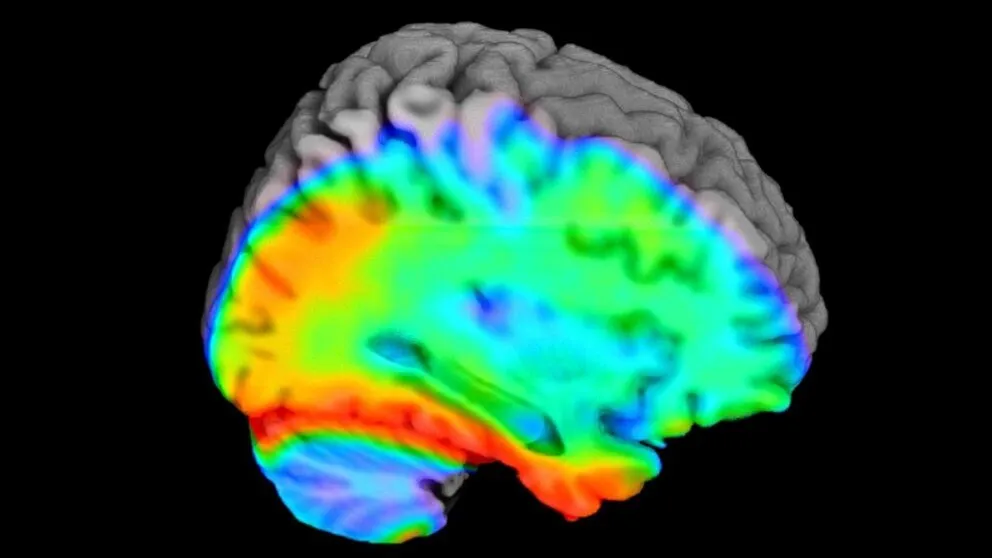By Nelly Gonzalez
Copyright timesofsandiego

An estimated 6.7 million people are living with Alzheimer’s in the United States right now. That number will grow — the CDC expects it to double by 2060. While Alzheimer’s affects people of all races, cultures, and ethnicities, Hispanics and Latinos are being hit particularly hard by this degenerative disease. In San Diego County alone, we anticipate a substantial 196% increase in the number of Latinos over the age of 65 with dementia or Alzheimer’s by 2040.
In my role at Alzheimer’s San Diego, where I work directly with clients and assess their needs, I’ve found that one of the biggest barriers to recognizing symptoms of Alzheimer’s is the stigma surrounding the diagnosis. Rather than face that stigma, many elders in the Hispanic and Latino community will attempt to hide their cognitive impairments or simply ignore them, often leading to disastrous outcomes. As symptoms worsen, the stress of secrecy grows and further disrupts daily life.
Unfortunately, many Hispanic and Latino patients hesitate to mention any kind of mental lapses to their doctor, and are insulted if their provider suggests cognitive testing. Hiding these symptoms ultimately delays treatment, and though Alzheimer’s is currently incurable, timely interventions can greatly impact a person’s quality of life when they develop the disease. Treatment is especially effective at the earliest stages of the disease, making early detection imperative.
At Alzheimer’s San Diego, we’ve witnessed firsthand how pushing past stigmas to receive care can be transformative. Elizabeth, 63, had noticed signs of memory loss in her now-husband Alvaro, 69, ever since they met eight years ago. Though Alvaro was hesitant, Elizabeth started attending classes with Alzheimer’s San Diego to better understand what he was experiencing. Since then, Elizabeth attends an in-person Spanish support group and takes Alvaro to social outings organized by Alzheimer’s San Diego.
They’ve learned about Alvaro’s specific type of dementia and better understood why he struggles to learn new things. Through Alzheimer’s San Diego’s support system, Elizabeth has learned how to cope with caregiving responsibilities, handle the finances of providing care, and be more empathetic to her husband.
A 2021 study from the National Center for Biotechnology Information found Hispanic and Latino Americans took 40% longer to be diagnosed with Alzheimer’s or dementia when compared to white Americans. Additionally, only 44% of Hispanics and Latinos with self-reported cognitive decline said they would discuss their symptoms with their healthcare provider. The evidence is crystal clear: the largest barrier to Alzheimer’s treatment in Hispanic and Latino communities is the stigma associated with cognitive decline.
Shifting perceptions around Alzheimer’s and dementia are key to improving outcomes for Hispanics and Latinos experiencing cognitive decline. Removing the stigma is no easy task, but simply acknowledging and talking about the reality of cognitive decline is a major first step in creating a more understanding culture around both Alzheimer’s and dementia.
If you have a loved one who seems to be struggling, here’s what you can do:
Open a conversation: Have an honest but empathetic dialogue about what they’re experiencing.
Let them know that what they’re going through is nothing to be ashamed of: While dementia is not considered a regular part of aging, it is simply an unfortunate possibility as an aging adult.
Seek resources and support programs: There are plenty of support groups and programs that offer resources on how to talk about cognitive impairment with aging adults.
My organization, Alzheimer’s San Diego, offers a variety of free support programs, resources, and educational classes in both Spanish and English, If you aren’t able to make it to an in-person or virtual class, there are plenty of videos and fact sheets available on our website, in Spanish, that will help you and your loved ones navigate the challenges of cognitive impairment. These resources, developed by our team at Alzheimer’s San Diego, will guide you and your loved one to ensure you never feel alone.
Most importantly, though, anyone can call Alzheimer’s San Diego at 858-492-4400, Monday through Friday between 8:30 a.m. to 5 p.m., and speak with a trained professional, in English or Spanish, to get help with their specific needs. All resources, advice, and classes are provided at no charge to the community.
Living with Alzheimer’s or dementia symptoms can be extremely challenging, but the stigma placed on these impairments just delays potentially life-changing treatments and care. We must help our neighbors overcome these barriers and confront the challenges of Alzheimer’s and dementia. You can do your part by simply talking about the disease or encouraging them to call us . Who knows — you may end up changing someone’s life.
Nelly Gonzalez is the supportive services manager with Alzheimer’s San Diego. She currently lives in Chula Vista.



